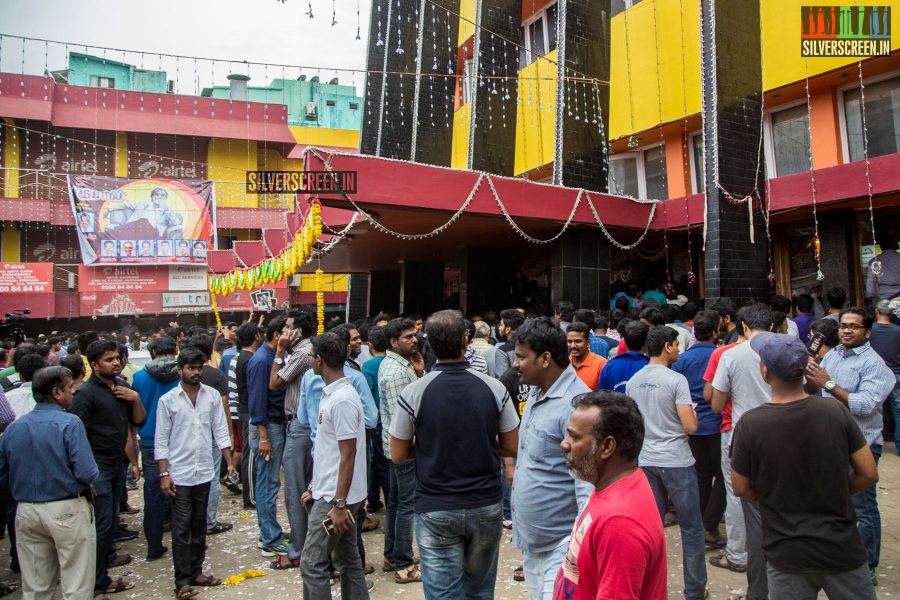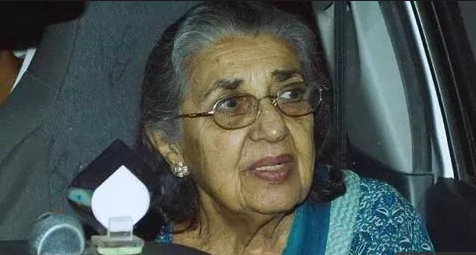For nearly a month now, the film-going audience in Tamil Nadu has been waiting for some resolution in the stand-off between film producers and Digital Service Providers (DSPs). Movie halls initially closed down but started operations recently, but the one thing missing is audience footfall. Re-runs of old movies and new releases in other languages are not helping the cash registers ring.
While the audience is paying the price as are the other stakeholders, not many still understand the reason for the showdown. And so, Silverscreen has put together a primer for you to understand how the industry works and why Virtual Print Fee (VPF) has become an issue that has polarised the industry.
When did it begin?
The strike began on March 1 owing to a disagreement between producers and Digital Service Providers (DSPs) over the VPF. The Tamil and Telugu industries took part in the strike while the Malayalam and Kannada industries shut down for a day in solidarity. Talks were initiated, sops offered, and the Telugu film industry withdrew from the agitation and resumed work from March 9.
Who are the DSPs?
The Digital Service Providers help stream a digitised version of a film to theatres. Qube is the market leader among DSPs in the South, and has about 700 screens in Tamil Nadu and 2,000 in the region. Another DSP that operates here is UFO. Qube and UFO are to merge into one entity.
What’s VPF? Why the stand-off?
The Virtual Print Fee, which was introduced by DSPs to distribute a movie digitally. This, reduced by half the cost otherwise incurred on physical prints — almost Rs. 40,000 for a single print. When theatres moved from the analog format to digital, they had to install digital projection systems that cost between Rs. 20 lakh and Rs. 60 lakh. Theatres were reluctant to make this kind of investment, and that is when the VPF was conceptualised. It allowed producers to digitally distribute a movie by paying a fee to the DSPs.
Meanwhile, the DSPs entered into an agreement with theatre owners for advertisements, sharing the proceeds. This ensured that the advertising content was not restricted to local brands.
While some producers say there was a sunset clause in paying the VPF and that after a point, once the cost of equipment was recovered, theatres should be able to own the projection system, Qube insists nothing of this sort was ever discussed or put down in writing. It claims it first heard of it in February 2018, after the strike was announced. Distributors are happy with the DSPs because they have opened up a new revenue stream from advertising. They also question why an issue is being raised about a negligible expenditure when star salaries make up the bulk of a film’s budget.
Founders Senthil Kumar and Jayendra Panchapakesan of Qube have in an interview said that they have made their last offer and there is nothing more they can do to end the stand-off.
Hollywood model
In the middle of these discussions, producers have spoken of why the Hollywood model cannot be followed for Tamil films. The assumption is that these movies pay lesser VPF. Not true, say the DSPs. Distributors say that if the Hollywood model is to be followed, it should also be applicable to revenue sharing as well as not taking advances and minimum guarantee to release a movie.
Equal playing field?
In the middle of all this, special permission was given to some films to continue shoot, a decision that has irked other producers who have obeyed the council’s diktat. It also had some wondering if big-ticket movies could get away with flouting or bending rules simply because of the money power involved.
Kollywood’s reaction has been fairly muted but for some outspoken voices. Superstar Rajinikanth, who is all set to form his own political outfit, and whose Kaala is waiting in the wings for release, said: “It would be better if the issues are resolved and everyone can get back to work; I’m not for labour strike.”
New players?
Recommended
The buzz is that the Tamil Nadu Film Producers Council (TFPC) is holding on for this long because it is trying to enter into an agreement with new DSPs that are offering more favourable terms. The TPFC head, Vishal said the team would “fight until we get what we deserve”. He added that the new entrants are looking at a VPF of only Rs. 12,000 for three years, and are ready to insert a sunset clause.
But, will the distributors lap up the offer? Highly doubtful, because this is an industry that has grudgingly accepted written contracts. Word-of-mouth trust works magic here, and the bond between the existing DSPs and theatres is an old one and is difficult to break. Years ago, they linked hands to bring in change, and the movie-going audience got used to a better movie-watching experience. And, most importantly, theatre owners are in no mood to shake off one set of hands and say hello to another, as the TFPC would like them to.



